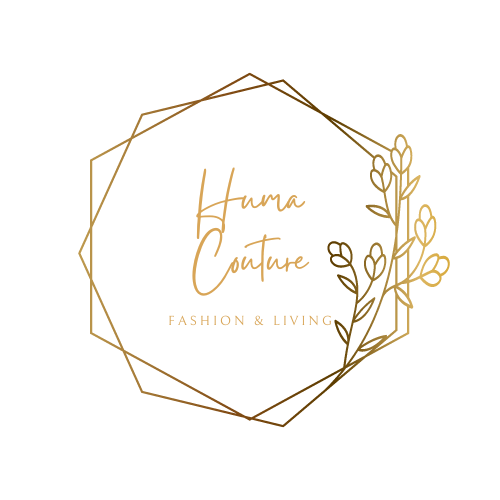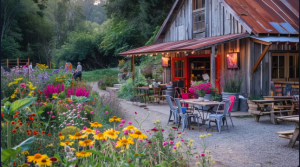Travel is more than just observing landmarks—it’s about immersing oneself in the local culture, embracing new experiences, and understanding the traditions and customs that shape a destination’s identity. Cultural travel allows you to explore beyond the surface, offering deeper connections with the people and places you visit.
This article will explain the significance of cultural travel experiences and highlight ways to discover local traditions and customs worldwide. From ancient rituals to modern celebrations, these experiences provide enriching insights and memories that last a lifetime.
Why Cultural Travel Matters
Cultural travel enhances your journey by offering more than just physical beauty or popular tourist attractions. It allows you to engage with the local way of life, understand the history behind customs, and appreciate the diversity of human expression. Here’s why it’s essential:
- Deepens Understanding: Experiencing local traditions fosters a greater understanding of the people and their heritage. It helps bridge cultural gaps, promotes empathy, and broadens your worldview.
- Authentic Connections: Cultural experiences often lead to more meaningful interactions with locals. Participating in a traditional festival or a community gathering gives one a sense of belonging and camaraderie.
- Supports Local Communities: Cultural tourism supports local economies. You contribute directly to sustaining these traditions when attending community events, purchasing handicrafts, or dining at family-owned restaurants.
- Japan: The Art of Tea Ceremonies Japan, a tradition-rich nation, effortlessly intertwines ancient customs with contemporary living. Among its most iconic cultural practices is the Japanese tea ceremony, also cited as “Chanoyu” or “The Way of Tea.” This centuries-old ritual embodies grace, harmony, and mindfulness, creating a profound and serene experience for participants.
Experience:
Participating in a traditional tea ceremony allows you to witness the precision and mindfulness of preparing and serving matcha tea. The ceremony, often held in a serene tea room or garden, emphasizes harmony, respect, purity, and tranquility. Each movement, from the tea’s whisking to the bowl’s presentation, is steeped in meaning.
What You'll Learn:
Through the tea ceremony, you’ll appreciate the importance of ritual in Japanese culture. It reflects values such as discipline, patience, and an appreciation for simplicity and beauty.
Tip for Travelers:
You can experience tea ceremonies in cities like Kyoto and Tokyo, where traditional tea houses welcome visitors. Some ceremonies also offer insights into the history of Japanese tea and the utensils used.
1. India: Celebrating Holi, the Festival of Colors
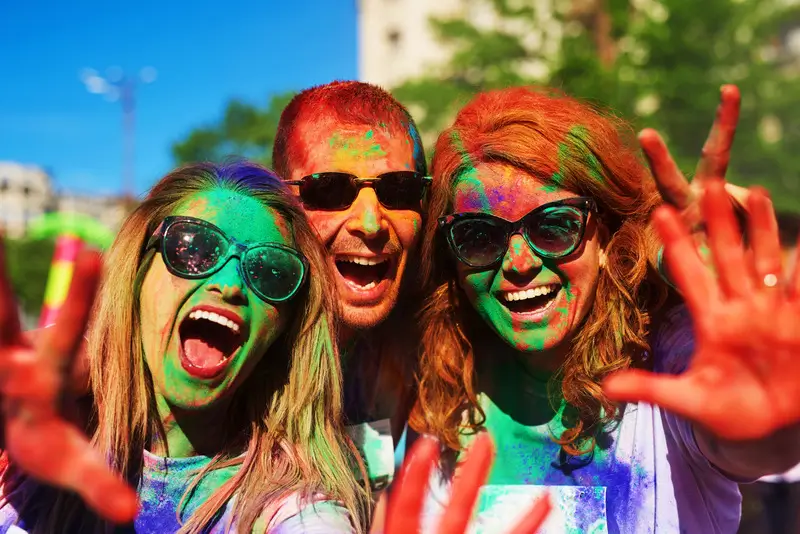
India is known for its vibrant festivals, and Holi is one of the most joyous and colorful celebrations you can experience. Holi, also known as the Festival of Colors, marks the arrival of spring and symbolizes the triumph of good over evil.
Experience:
During Holi, streets and public spaces become a riot of color as people throw powdered dye at one another. It’s a time for dancing, singing, and sharing sweets with friends and strangers. The festive spirit encourages inclusivity, where everyone participates regardless of age, caste, or religion.
What You'll Learn:
Holi showcases India’s love for community celebration and the importance of joy, renewal, and unity. By participating in Holi, you’ll experience how festivals unite people in a shared celebration of life’s vibrancy.
Tip for Travelers:
Cities like Jaipur, Mathura, and Vrindavan host large-scale Holi events, but even in smaller towns, you’lllocals are eager to include visitors in the festivities. Wear old clothes, as the colorful powders can stain!
2. Morocco: Exploring the Art of Souks and Crafts
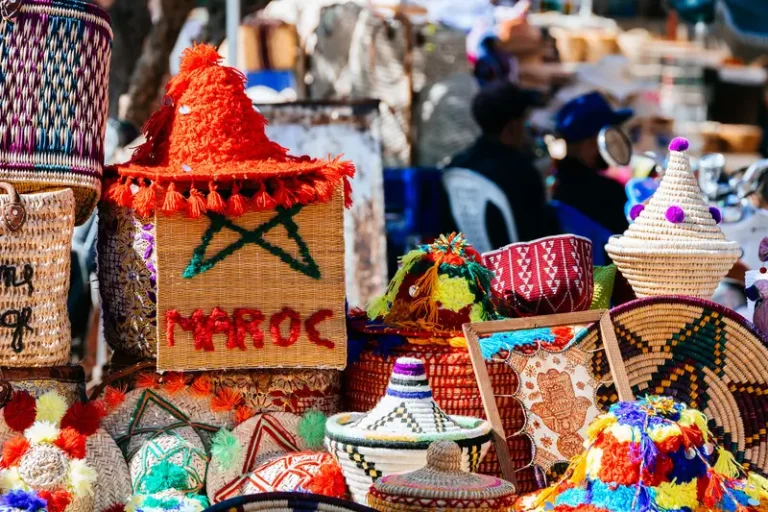
Morocco is renowned for its bustling markets, known as souks, where centuries-old traditions of craftsmanship thrive. From intricate ceramics and vibrant textiles to beautifully woven carpets and hand-tooled leather, Moroccan artisans have honed their skills over generations.
Experience:
A visit to the souks, especially in cities like Marrakech or Fes, is a sensory delight. The art of bargaining is an essential part of the shopping experience, and it’s not just about getting a reasonable price—it’s about engaging in a social ritual where both buyer and seller participate in a lively exchange.
What You'll Learn:
Shopping in Moroccan souks teaches you the significance of traditional craftsmanship and the skill required to create unique, handmade goods. You’ll also gain insight into the importance of social interaction in Moroccan culture.
Tip for Travelers:
Don’t be afraid to engage in polite bargaining—it’s expected. Learning a few basic Arabic phrases, such as “Shukran” (thank you) and “Salaam Alaikum” (peace be upon you), will also help you establish rapport with local vendors.
3. New Zealand: Discovering Māori Culture
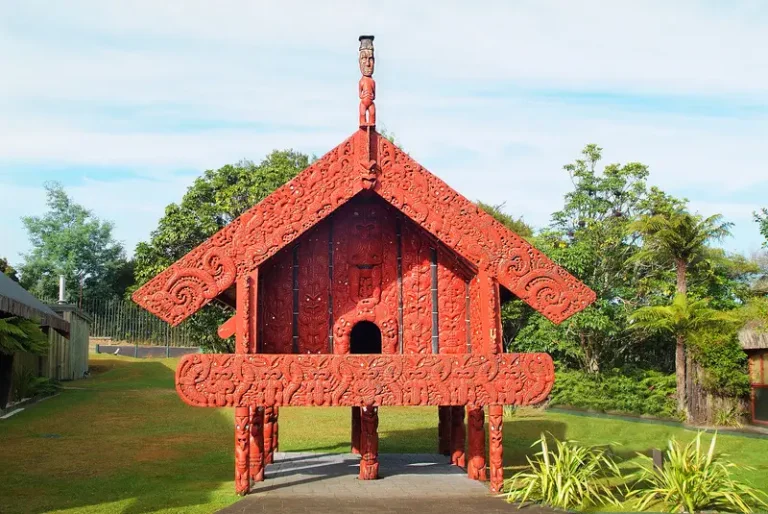
The indigenous Māori culture of New Zealand is rich with traditions, stories, and a deep connection to the land. From powerful haka performances to intricate whakairo (carving) and kapa haka (group performances), Māori customs offer a unique cultural experience.
Experience:
A visit to a Māori marae (meeting ground) presents a unique opportunity to learn about Māori customs. Ceremonial welcomes, known as pōwhiri, include speeches, singing, and food sharing. The haka, a powerful and intense traditional war dance performed by men, is a powerful display of strength and unity that symbolizes Māori pride and culture.
What You'll Learn:
Māori customs are deeply rooted in whakapapa, or genealogy, highlighting the importance of family and ancestry. You’ll also learn about Māori values such as hospitality, respect for the environment, and communal living.
Tip for Travelers:
Rotorua is one of the best places to experience Māori culture firsthand. Many cultural tours offer visitors the chance to witness traditional performances, enjoy a hangi (earth oven) meal, and learn about Māori history and traditions.
4. Peru: Celebrating Inti Raymi, the Festival of the Sun

Peru’s Inti Raymi, or Festival of the Sun, is one of the most significant celebrations in Andean culture. It dates back to the Inca Empire, honors Inti, the sun god, and marks the winter solstice in June.
Experience:
Inti Raymi is celebrated with grand processions, colorful costumes, and traditional music and dance. The main event takes place in Cusco, the historic capital of the Inca Empire, where the streets come alive with reenactments of ancient Inca rituals. The celebration culminates at the fortress of Sacsayhuamán, where offerings are made to the gods to ensure a bountiful harvest.
What You'll Learn:
Inti Raymi offers a glimpse into the Inca civilization’s spiritual practices and the importance of the sun in sustaining life. The festival also highlights the continued influence of indigenous culture in modern-day Peru.
Tip for Travelers:
Plan your visit well in advance, as Cusco attracts thousands of visitors during Inti Raymi. Attending the festival is a unique way to connect with Peru’s rich history while experiencing the enduring legacy of the Incas.
5. Italy: The Tradition of Italian Family Dinners

In Italy, food is more than sustenance—a way of life. One of the most cherished cultural traditions is the family dinner, where meals are a time for connection, conversation, and celebration.
Experience:
Whether dining in a family-run trattoria or being invited into an Italian home, you’ll experience the warmth and hospitality Italians are famous for. Meals are multi-course affairs, often starting with antipasti, then pasta, meat, or fish, and ending with dolce (dessert). Food is prepared with love, care, passion, and attention to detail using fresh, local ingredients.
What You'll Learn:
Italian dining customs emphasize the importance of la famiglia (family) and la dolce vita (the sweet life). Meals provide an excellent opportunity to relax, fully appreciate the delicious flavors, and cherish the presence of cherished family and friends.
Tip for Travelers:
To experience authentic Italian cuisine, venture beyond tourist areas and dine at local establishments. Immerse yourself in Italy’s rich culinary traditions by taking part in cooking classes in picturesque regions such as Tuscany or Sicily. These classes allow you to learn traditional Italian recipes firsthand and engage in a hands-on cultural experience while honing your cooking skills.
FAQ
What is cultural tourism?
Cultural tourism involves traveling to experience and engage with a place’s customs, traditions, and heritage. It often includes participating in festivals, visiting historical sites, and exploring the vibrant world of local arts and crafts.
How can I respect local cultures while traveling?
Learning about the local customs is always a good idea before visiting a new place. Research local customs before visiting, dress appropriately, ask for permission before taking photos, and engage respectfully with local traditions.
Is it possible to experience local culture on a budget?
Yes! There are numerous cultural experiences to enjoy, including vibrant festivals, bustling markets, and lively public ceremonies, many of which are either free or low-cost.
What are the benefits of cultural travel?
Cultural travel promotes understanding, empathy, and appreciation for different ways of life. It also helps preserve traditions by supporting local communities through responsible tourism.
Can children participate in cultural travel experiences?
Absolutely! Cultural travel is an excellent way for children to learn about the world and gain a broad global perspective. Many festivals and activities are family-friendly.
Conclusion
Cultural travel goes beyond sightseeing—it offers the chance to engage with local traditions and customs, creating deeper connections with the places you visit. Whether you’re partaking in a Japanese tea ceremony, dancing during India’s Holi festival, or experiencing Māori rituals in New Zealand, these experiences provide significant insights into the richness and diversity of human culture.
Embracing cultural travel allows you to immerse yourself in different societies’ diverse traditions, customs, and lifestyles. This enriching experience deepens your appreciation of the world and enables you to forge enduring memories and connections beyond geographical boundaries.
